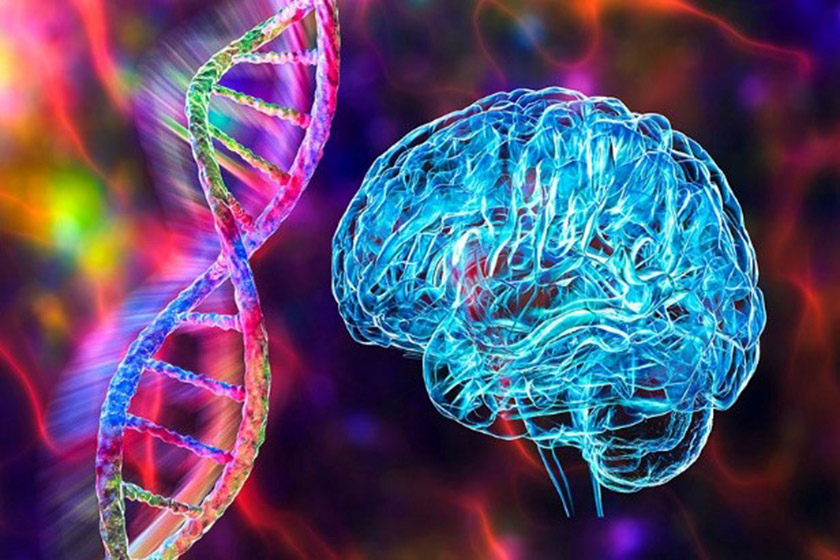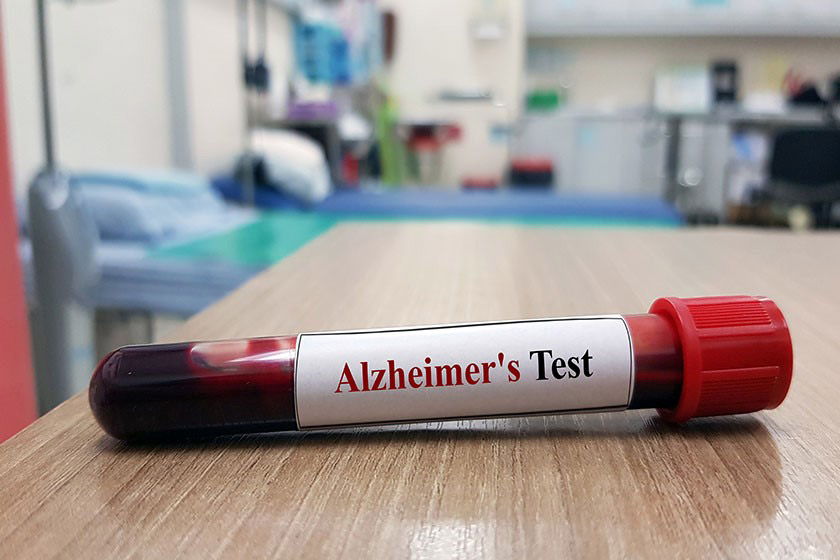
A Brief Review of Genetic Aspects of Alzheimer’s Disease
Alzheimer’s disease is a progressive brain disease associated with a loss of memory, judgment, and functioning abilities. Most forms of this disorder appear after 65, although rarer forms can occur during youth. The most common symptom of Alzheimer’s disease is memory loss. There are many causes of dementia, but Alzheimer’s is the most common. An Alzheimer’s patient may become lost or confused even in familiar surroundings. Routine chores like cooking, cleaning, and laundry can be tedious.
Moreover, recognizing people and naming objects may become more complex. Some people with Alzheimer’s disease experience personality changes and difficulty interacting socially as the disease advances.
Scientists believe Alzheimer’s disease has no single cause but there are likely many factors contributing to it, including genetics, lifestyle, and environment.
We can’t change risk factors like age, family history, and heredity. However, new studies suggest we can alter others.
Contents
How Is Alzheimer’s Inherited?
Some genes may increase a person’s chances of developing the disease. Alzheimer’s disease does not necessarily run in families. Genes play a role in disease development in two different manners: risk genes and deterministic genes. In both categories, genetic markers for Alzheimer’s have emerged. There is no known gene responsible for late-onset Alzheimer’s disease.
-
- Read More: Everything About Alzheimer’s Disease
Alzheimer’s Risk Genes

Having the gene APOE-e4 increases the likelihood of contracting this disease but does not guarantee it.
This risk gene is present in 65% of people with Alzheimer’s. From each parent, we inherit a copy of APOE. The other two are APOE-e2 and APOE-e3.
Alzheimer’s is more likely to develop in individuals who inherit one copy of APOE-e4. There is an even higher probability for those whose parents have two copies, but not a guarantee. APOE-e4 may also accelerate the onset of symptoms.
Some people with APOE-e4 genes may never develop Alzheimer’s, and other people with Alzheimer’s do not even have any APOE-e4 genes.
Alzheimer’s Deterministic Genes
Families with these genes are more likely to suffer from familial early-onset Alzheimer’s in their 40s and 50s as symptoms develop. Alzheimer’s is directly related to these rare genes. A few hundred families worldwide carry a rare gene that causes Alzheimer’s. While hereditary genes associated with familial Alzheimer’s are rare, their discovery has provided critical clues toward understanding the disease.
Is Alzheimer’s Inherited from Mother or Father?
Genes are segments of DNA, and biological parents pass down their genes to their children. Among other things, genes describe specific characteristics such as body type, skin, hair and height. Genes also play a role in the health of our cells.
Several genes may contribute to Alzheimer’s disease. However, does dementia come from mothers or fathers? Each parent passes on some form of APOE to us, but Alzheimer’s is more likely to develop in individuals who inherit one copy of APOE-e4.
Genetic Test for Alzheimer’s Disease

Alzheimer’s is among The Most Threatening Mental Disorders In Seniors. Blood testing can identify whether or not a person has a risk factor gene, but it is not a predictor of Alzheimer’s disease. APOE testing identifies individuals at risk for Alzheimer’s disease in research settings.
Genetic testing is also available for the rare genes directly linked to Alzheimer’s. A genetic test cannot determine a person’s likelihood of developing Alzheimer’s disease; it can only tell us which genes cause the disease. According to researchers, there may be too many factors affecting the disease’s development and progression for genetic testing ever to predict it with 100 percent accuracy.
Scientists do not recommend general population genetic testing. Whether you are worried about the symptoms of Alzheimer’s disease or changes in your memory, it’s best to talk directly to your healthcare provider.
Final Words
It is unnecessary to have a family history for someone to develop Alzheimer’s; nevertheless, those with more than one first-degree relative with Alzheimer’s disease are at greater risk.
There are many factors contributing to it, including genetics, lifestyle, and environment. There are some risk factors we can’t change, but lifestyle changes can help.
My father and brother both had Alzheimer’s disease. Personally, while I should be frightened, I don’t care much for my own destiny. God was kind enough to make me a free spirit that is willing to accept anything that comes his way. But my mother was very worried about me until her last breath. My sister also got away with the disease, thank God. So I wonder if it’s possible for this disease to only develop in the males (or females) of a family.
Is there a blood test for Alzheimer’s? Not the one that shows if you have the APOE-e4 gene. My grandfather had Alzheimer’s; of course, we don’t know if he had Alzheimer’s or other forms of dementia. Because there was no way, they could diagnose it back then. One of my biggest nightmares is to inherit Alzheimer’s, or even worse, pass it on to my children. Will there ever be a cure for this disease?
I want to believe that a healthy lifestyle can prevent Alzheimer’s, and I hope there’s a cure for this disease one day. It’s so scary, the brain starts dying, and you are not you anymore. I don’t know anyone who had it. I’ve only seen a couple of movies about Alzheimer’s; it is a horrible condition.
I wish this disease did not bring terrifying notions with it. I am not trying to say it is not a big deal, but I am pretty sure the name and the idea of it are scarier than the disease itself, so when someone is diagnosed with it, it is hard for those who love them to prepare themselves mentally and be there for their loved one. Although, I still wish this disease did not exist, or at least I wish there was a definite cure for it.
I think apart from all the hardships that come with finding out your parent has Alzheimer’s, the fear of it being hereditary is also very exhausting. I wish well for everyone struggling with this disease and those who are struggling with the fear of it.
I don’t have Alzheimer’s disease in my first class family. But recently, doctors diagnosed this disease in one of my father’s cousins. My father has 70, and I’m worried if this gen is inherited by my father and me or not.